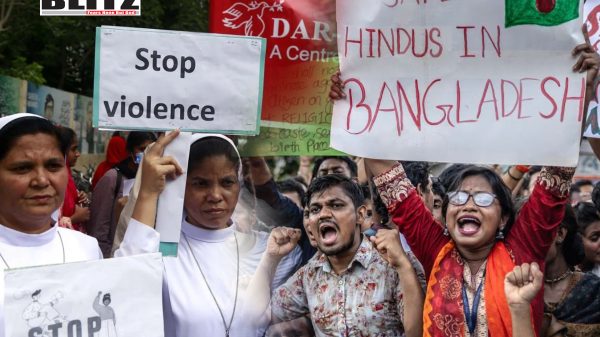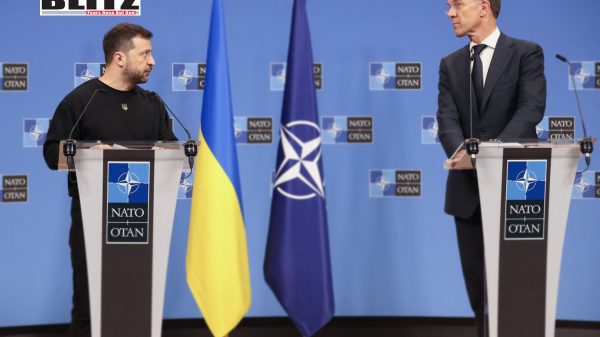In Bangladesh, involvement in militancy often stems from various motivations
- Update Time : Saturday, September 23, 2023

Through its extensive experience in combating militancy, RAB has gained valuable insights into effectively addressing the issue of militancy in Bangladesh. Writes Khandaker Al Moin BPM (BAR), psc
Terrorism, as a phenomenon, boasts a long and storied history, shape-shifting across epochs and adopting new guises with the passage of time. This alarming phenomenon finds its antidote in the unwavering stance of the Bangladeshi populace against terrorism, the government’s well-defined vision, and the judicious utilization of law enforcement agencies. The collective determination of the people to denounce terrorism has been a key driver in the country’s counterterrorism efforts. Moreover, the government’s proactive approach, guided by a clear and comprehensive strategy, has played a pivotal role in curbing the influence of militant elements.
In the face of a dynamic and evolving threat landscape, Bangladesh remains committed to upholding the principles of peace and security. The nation’s resilience and resolve continue to serve as a beacon of hope in the global fight against terrorism, reminding the world that with determination, vigilance, and unity, terrorism can be confronted and ultimately defeated.
Since its inception, the Rapid Action Battalion (RAB) has played a pivotal role in combatting militancy in Bangladesh, in accordance with its designated mandate. RAB has made significant strides in dismantling the networks of various militant groups by apprehending top leaders of the country’s first-generation militant organizations including the Ameer of recently banned militant outfit Jamaatul Ansar Fil Hindal Sharqiya.
Mufti Hannan of Harkat-ul-Jihad al-Islami Bangladesh (HuJI-B), JMB’s top leader Shaikh Abdur Rahman, Siddiqul Islam alias Banglabhai, and other top militant leaders have all been captured and brought to justice through RAB’s relentless efforts. Furthermore, RAB apprehended Mufti Moin Uddin, also known as Abu Jandal, the operational commander behind the August 21 grenade attack, and Zahidul Islam, alias Bomaru Mizan, the mastermind behind the 2005 series bombings.
RAB also played a crucial role in apprehending Mahmud Hasan Gunbi, the spiritual leader of Ansar al-Islam who had instilled fear by orchestrating the targeted killings of 13 free-spirited bloggers and writers in the previous decade. Following these apprehensions, Bangladesh enjoyed a period of respite from terrorist attacks. However, the resurgence of militant organizations became apparent with the Holey Artisan attack in 2016.
In response to the Holey Artisan attack, RAB took the lead in collaborating with joint forces to contain the initial situation. This paved the way for subsequent major operations. RAB conducted successful operations against key militant figures, including Sarwar Jahan, the mastermind behind the Holey Artisan attack, in Ashulia; Mamunur Rashid, also known as Ripon, a member of JMB’s Shura council who supplied funds, weapons, and explosives for the Holey Artisan attack, in Gazipur; and in Chapainawabganj Shariful Islam, alias Khalid, a top JMB leader who was a charge sheet accused in the Holey Artisan Attack case.
Through a series of anti-terrorist operations conducted across the nation, RAB systematically dismantled the organizational structures of these militant groups and apprehended a significant number of militants. This proactive stance by the RAB has contributed significantly to enhancing security and countering the threat of militancy in Bangladesh.
Through its extensive experience in combating militancy, RAB has gained valuable insights into effectively addressing the issue of militancy in Bangladesh. This journey has provided RAB with a comprehensive understanding of various aspects, including the motivations driving individuals to engage in militancy, the tactics employed by militant organizations to recruit and radicalize new members, the counter-militancy initiatives undertaken by diverse stakeholders, and the profound challenges faced by the families of those involved in militancy as they strive to reintegrate into mainstream society.
Why do people engage in militancy? In Bangladesh, involvement in militancy often stems from various motivations, with ideological or religious convictions playing a prominent role. Individuals who become associated with militant groups are often drawn to extremist ideologies that make false promises on the path of fulfilling their deeply held beliefs. Within these ideologies, violence is sometimes viewed as a sacred or moral duty, making it an enticing prospect for some. These ideologies can be rooted in religious, nationalist, or political beliefs, and they tend to attract those who are disillusioned with the existing socio-political system.
Mental vulnerability is another factor that can make individuals susceptible to militancy. Those who are mentally weak or easily influenced, especially by friends, family members, or acquaintances already involved in militancy, may be more inclined to join such groups. Personal grievances and vendettas can further drive individuals to seek refuge in militancy, as they see it as a means of seeking revenge against those they perceive as oppressors. Experiencing personal or communal losses, injustice, or violence can also push people towards militancy, as they believe it offers a platform for addressing their grievances.
The process of radicalization often unfolds within secret social networks, where individuals express militant ideas and are encouraged to embrace militancy by friends, family members, or charismatic leaders. Additionally, socio-economic factors can play a significant role in driving people towards militancy. Poverty, unemployment, and limited access to basic services can create an environment where militant groups are seen as providers of financial support and avenues to achieve social status. This can be particularly appealing to individuals facing economic hardships. Moreover, for some, violence is seen as a means to challenge the prevailing political status quo.
How and who they choose. Militant groups today employ a diverse range of tactics to recruit new members, capitalizing on both traditional and modern channels of influence and communication.
One of the common recruitment methods is through existing social networks. Friends, family members, acquaintances, and peers can be influenced to join militant organizations through ideological indoctrination. These personal relationships serve as conduits for introducing individuals to extremist ideologies and recruiting them into the fold of these groups.
The internet has emerged as a powerful tool for extremist recruitment and radicalization. Social media platforms, online forums, and encrypted messaging apps provide a vast platform for promoting militancy and connecting with potential recruits. Militant groups utilize these digital spaces to disseminate propaganda, share videos, distribute pamphlets, and present various materials that promote their extremist ideology. They often glorify violence and misrepresent religious issues to justify their cause, attracting new members who may be vulnerable to their messaging.
Vulnerable individuals who feel marginalized, humiliated, traumatized, or isolated from mainstream society are often targeted by militant groups. Such individuals are more susceptible to the appeals of extremist ideologies, as they may see these groups as providing a sense of belonging, purpose, and empowerment.
Financial incentives are also commonly used by militant groups to lure recruits. Promises of money or assistance for their families serve as attractive inducements. In some cases, marginalized or socially vulnerable individuals are coerced or threatened into joining militancy, especially in regions where these groups have a significant presence and exercise control.
Another concerning trend is the radicalization of inmates in correctional facilities. Many individuals are exposed to militant ideologies while serving time in jail for various crimes. After their release, some former inmates may seek connections with existing militants, leading to further recruitment into extremist organizations.
In the broader context, countering militancy requires a comprehensive, multi-pronged approach that encompasses various aspects of the country’s security apparatus, socio-economic development, education, and support for affected families. It is imperative to recognize that efforts to combat militancy should extend beyond mere counterterrorism measures. Instead, they should incorporate integrated strategies that delve into the root causes of militancy and address the underlying motivations that drive individuals toward extremism.
By doing so, the focus can shift toward implementing deterrent measures targeting the recruitment practices of militant organizations, thereby preventing the further radicalization of vulnerable individuals.
Simultaneously, various stakeholders, including government bodies, civil society organizations, religious institutions, and communities, must work collaboratively to establish a safer, more inclusive, and profoundly peaceful world. This holistic approach should also include specialized initiatives aimed at facilitating the successful reintegration of individuals involved in militancy into society, ultimately fostering a sense of belonging and security for all.
Khandaker Al Moin is Director, Legal & Media Wing, RAB Forces HQ, Kurmitola, Dhaka


















Leave a Reply